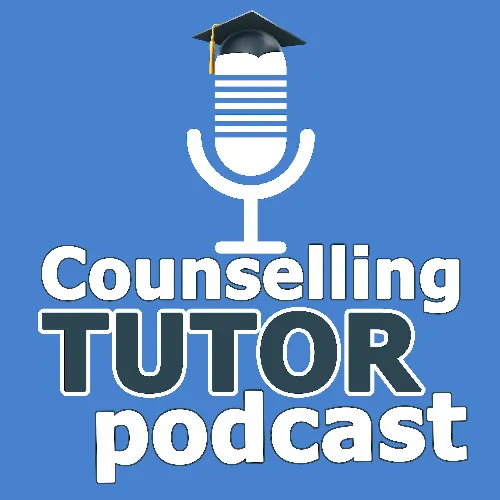147 – Power Dynamics in Counselling
- Author
- Ken Kelly and Rory Lees-Oakes
- Published
- Sat 25 Apr 2020
- Episode Link
- https://counsellingtutor.com/power-dynamics-in-counselling/
Issuing of Qualifications - Maintaining Professional Motivation
In episode 147 of the Counselling Tutor Podcast, Ken Kelly and Rory Lees-Oakes talk about the power dynamics in the counselling relationship. 'Check-In with CPCAB' then explores how counselling qualifications are issued. Last, in 'Practice Matters', Ken and Rory discuss how to maintain professional motivation, especially during the COVID-19 lockdown period.
Power Dynamics in Counselling (starts at 1.50 mins)
The historical beginnings of psychotherapy - in the psychoanalysis developed by Sigmund Freud - portrayed the practitioner as an expert and so placed them in a position of greater power than the 'analysand' (client).
Since then, however, the nature of therapy has changed greatly, so that client autonomy is now seen is a vital part of therapy in all modalities.
In the power dynamics in counselling, it is possible that clients (especially those who are not yet familiar with how counselling works) may expect their therapist to provide expertise and advice to them.
This expectation may be fuelled by transference - for example, if the therapist reminds the client of a figure of authority from their past.
As counsellors, we have a responsibility to encourage exploration of any such perceptions, and to encourage clients to trust that they themselves can find their own solutions to life difficulties.
Part of this approach involves working to equalise power where possible. For example, we seek to ensure that both the client and the counsellor have a seat of the same or similar type and height.
However, there are some areas in which it is impossible to fully equalise power, for example:
it is the client who comes to us with a difficulty
it may be us who sets the time and location of the session
there are legal requirements for us to break confidentiality in certain situations.
All these aspects of counselling increase our power and reduce the client's. What matters is being aware of the power dynamics in counselling, and doing what we can to equalise power where possible, in the service of our clients.
Rory provides an example of where power can be used positively by therapists: maintaining session boundaries (e.g. finishing at the originally scheduled end time, even when a client has arrived late) can be helpfully stabilising for clients.
Check-In with CPCAB: Issuing of Qualifications (starts at 15.50 mins)
Rory talks to Heather Price (Senior Counselling Professional) at CPCAB (Counselling & Psychotherapy Central Awarding Body) about how qualifications are issued.
As a student of counselling and psychotherapy, your contract is with your centre (i.e. your training provider, such as a college).
Meanwhile, your centre has a contract with the awarding body (e.g. CPCAB) - though universities are able to act as their own awarding bodies. Thus, if you have any questions about your qualification, it should be your college rather than CPCAB that you approach.
To gain your counselling qualification, it is necessary to satisfactorily complete both your internal and external assessments.
The internal assessment takes the form of a portfolio of work, while the external assessment for CPCAB is an exam.
Once you have passed both elements of the assessment, CPCAB will then issue your certificate,
